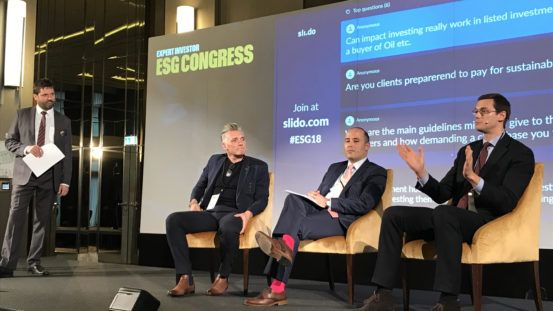The aim of impact investing, as is well known, is to put money into companies that generate a measurable and beneficial social or environmental impact alongside a financial return.
The problem is, according to panellists at a conference held by ESG Clarity‘s sister title Expert Investor in Berlin last week, that impact funds often struggle to invest in a “net positive way” and all too often negative impacts can be an undocumented by-product of ESG-style investing.
Tommy Piemonte, head of sustainable investment at Bank für Kirche und Caritas, said that one of the challenges he faced with environmental, social, and governance (ESG) investing was that he did not know whether sustainable investments made today would genuinely result in positive long-term impacts solve or alleviate the world’s social and environmental problems
“So-called ‘positive impact’ investments can have negative impacts,” he said.
“Windfarm investing, for example, has positive environmental impacts, but it might have really negative social impacts. We have to think about all the components and how we can invest in a net positive impact way.”
“We have to think about all the components and how we can invest in a net positive impact way.”
Also speaking on the panel, Affinity Private Wealth director for investments, Russell Waite said another issue could undermine the effectiveness of ESG investing is now to report impact.
“The more sophisticated investors in this space will be challenging us by saying ‘you’ve been invested here for three to five years can you demonstrate to us the positive impact that it has made?’,” Waite said.
“It is quite difficult in the liquid space but is becoming increasingly straightforward in the illiquid space through private debt and private equity, but not all investors can do that. While we can’t be super impactful across all asset classes the thing that is the challenge is the reporting.”
Listed assets
On listed assets, Piemonte said creating a positive impact through listed companies would only be possible through engagement.
With engagement investors would be able to influence companies to change their business models along with the firm’s share price, he said.
Mainstreet partners director, Rodolfo Fracassi, said there was a classification issue when it came to impact investing and listed assets.
“We were invested indirectly in a private equity deal with a listed bank, Procredit Holding, that focused on micro finance and small to medium enterprises in Europe and South America – it was a fantastic asset,” he said.
“It was an impact investing deal when it was private and once its shares became listed many investors suddenly did not consider it as an impact investment.
“So, I’m puzzled as to what changed. Its core business was still the same and the only difference was that it had become listed.”
Fracassi added that he considered an investment to be “impactful” if more than 70% of the revenue of accompany came from impactful activities whether it was listed or private.
– This article first appeared on ESG Clarity‘s sister title Expert Investor.








